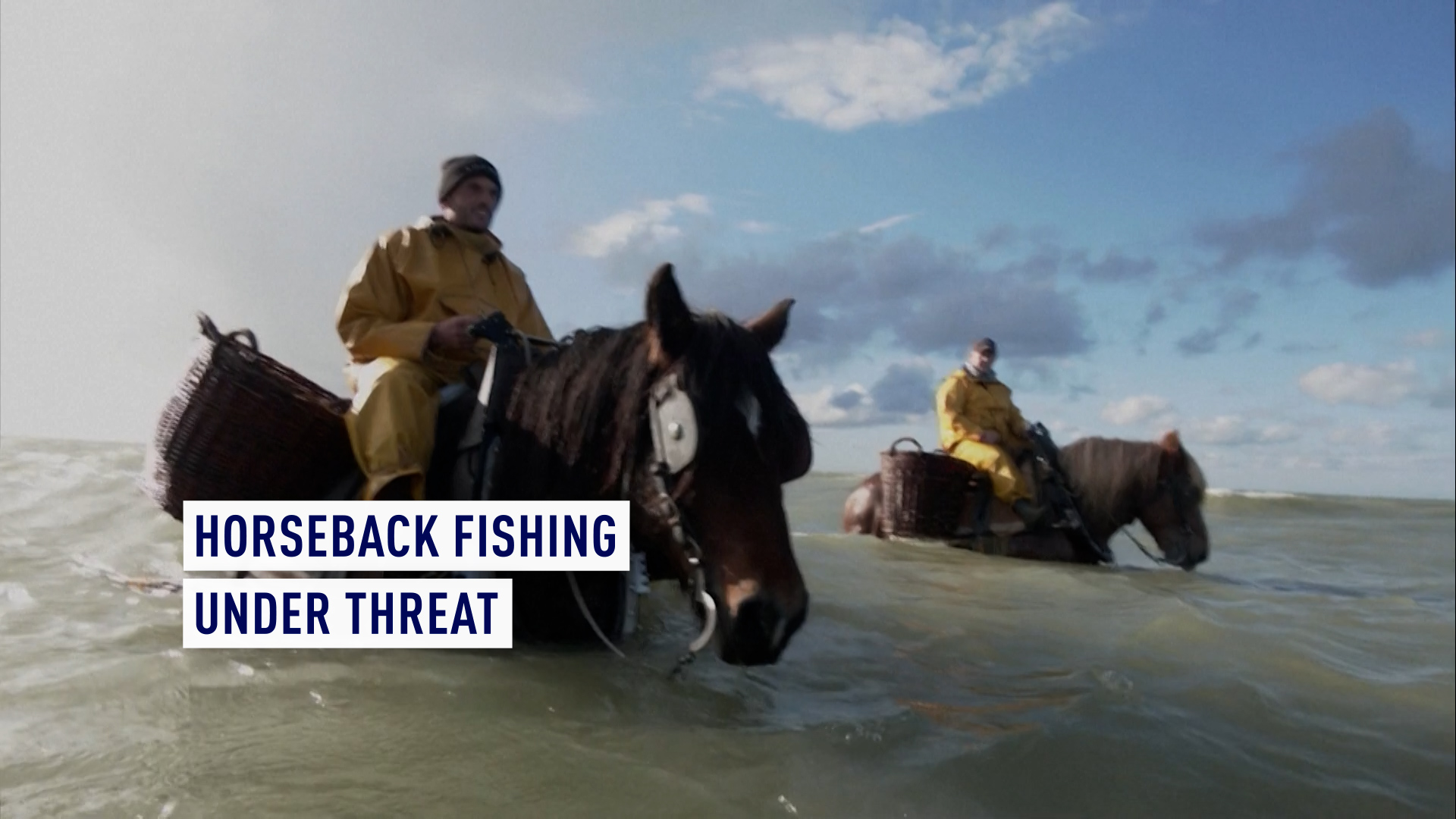01:32

On a crisp, wintry day on Belgium's far-western coast, Gunther Vanbleu rides his draft horse down the sandy beach and into the shallow waters. As the bright yellow of Vanbleu's anorak stands out against the waves, under the water, his draft horse – characterized by its powerful hindquarters – pulls a chain along the sand, causing a vibration that sends shrimp jumping into an outstretched net.
The coastal village of Oostduinkerke is the last place in the world where horseback shrimp fishing is still practiced – today as a UNESCO-recognized centuries-old tradition rather than a commercial enterprise.

The coastal village of Oostduinkerke in Belgium is the last place in the world where horseback shrimp fishing is still practiced. /Yves Herman/Reuters
The coastal village of Oostduinkerke in Belgium is the last place in the world where horseback shrimp fishing is still practiced. /Yves Herman/Reuters
The fishermen and women's proximity to the coastal waters has made them frontline witnesses of how climate change is altering the ecosystem of the North Sea.
"We have less shrimp catch than we used to. But we also have more weevers and animal species that you didn't see here before, which come from the Atlantic as the water warms up," Vanbleu said. Weevers are small, venomous fish that tend to burrow into the sand with just their eyes visible.
Oceans have absorbed 90 percent of the global warming that humans have caused in the last few decades, according to NASA. In the North Sea, surface temperatures have increased by around 0.3 degrees Celsius per decade since 1991.

The fishermen and women's close proximity to coastal waters have made them witnesses to climate change as the number of shrimp dwindle. /Yves Herman/Reuters
The fishermen and women's close proximity to coastal waters have made them witnesses to climate change as the number of shrimp dwindle. /Yves Herman/Reuters
That rise in temperatures has disrupted traditional seasons for the small horseback-fishing community.
"The best period to fish for shrimps used to be from September until December, when it starts to freeze. What we see now is that we get the best catches later in the season," Vanbleu said.
While shrimp populations fluctuate during short-term changes like heatwaves, fishermen and scientists report increases in lesser weever fish and squid, traditionally found further south but which have moved north into Belgium's warming waters.
READ MORE
Gazan charity helping animals on frontline
CGTN wins four Lovie awards
Words of Wisdom
Other species have fared worse. North Sea cod populations have plummeted since the 1980s, which scientists attribute to rising sea temperatures and overfishing.
Subscribe to Storyboard: A weekly newsletter bringing you the best of CGTN every Friday
Source(s): Reuters